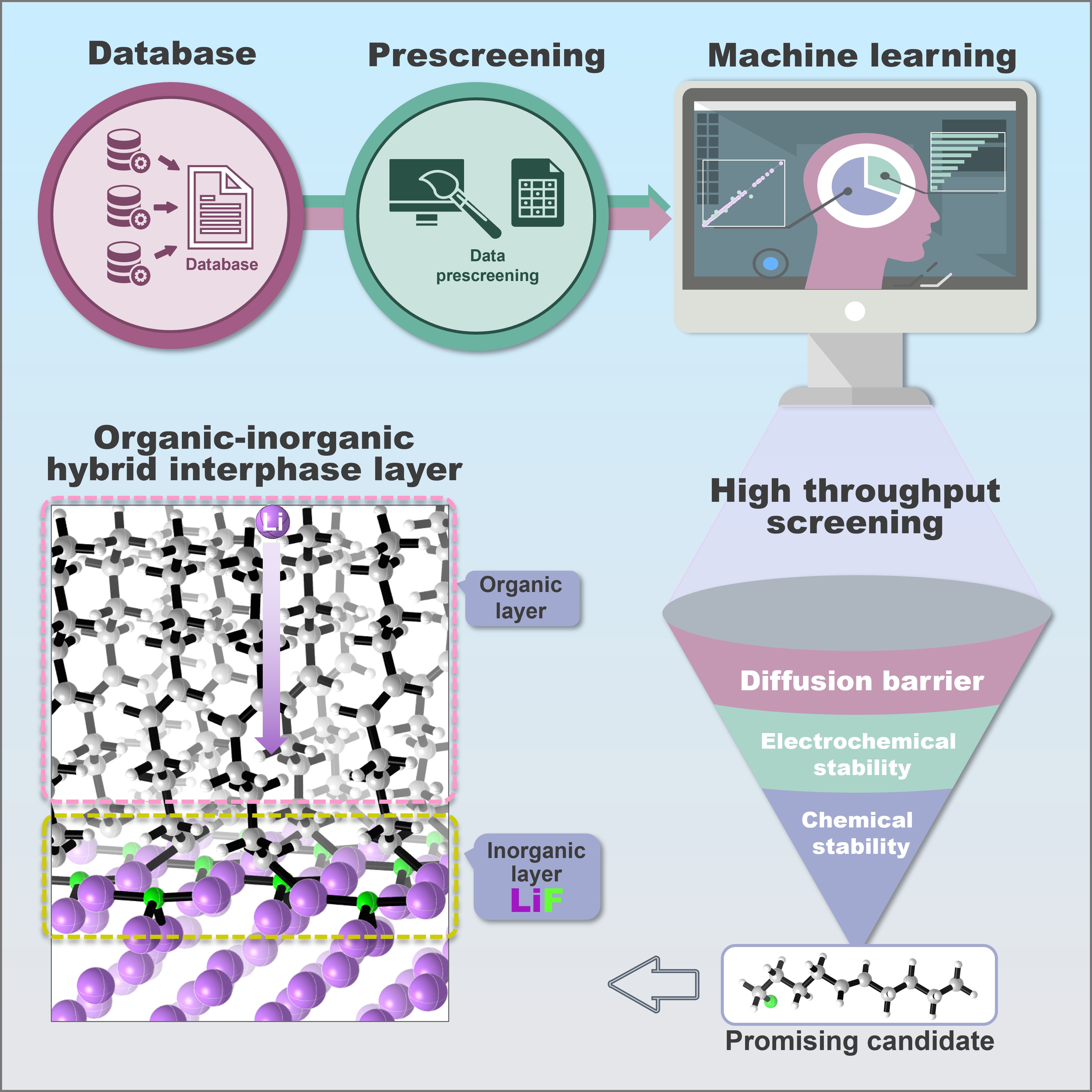
Lithium metal batteries (LMBs) have attracted much attention for their potential in electronics and electric vehicle applications. However, issues such as the growth of Li dendrites and undesirable side reactions with electrolytes during electrochemical cycling hinder their widespread commercialization.
A research team led by Prof. XUE Dongfeng and Dr. PENG Chao from the Shenzhen Institute of Advanced Technology (SIAT) of the Chinese Academy of Sciences (CAS) has recently introduced a novel inorganic-organic hybrid interphase layer strategy based on self-assembled monolayers method. The strategy endows Li metal anode interface good mechanical stability and excellent ionic conductivity and induces Li uniform deposition and suppression of Li dendrite growth.
The results were published in Matter on Aug. 3.

Scheme of the inorganic-organic hybrid interphase layer strategy by self-assembled monolayers method with the aid of machine learning to accelerate material design. (Image by SIAT)
The researchers applied the high-throughput data-driven workflow to enable intelligent design of self-assembled molecules. The workflow contains screening criterions of self-assembled molecule characteristics, electrochemical stability of molecules, chemical stability and ionic conductivity of interphase protection layer, and it can automatically capture targeted self-assembled molecules from the PubChem database.
This new research paradigm accelerates the screening process for selecting the most promising candidate molecules, and allows intelligent design of artificial interphase layer of Li metal anode by leveraging machine learning techniques.
Furthermore, the researchers revealed the structure-performance relationship between the molecule structural characteristics (head group, tail group and middle group) as well as the electronic properties and the performance of the protection layer, where the quantum mechanical dipole and electrostatic potential of molecules were identified as significant descriptors to predict the energy barrier of Li diffusion through the hybrid protection layer.
They established a database consisting of 128 self-assembled organic molecule candidates selected from the PubChem database and suggested eight best molecules to favor constructing the inorganic-organic hybrid interphase layer at Li metal anode. These molecules with terminated fluoride head group (-F) allow to form LiF inner inorganic interphase that improves the stability and ionic conductivity of the interphase layer on the Li metal anode, while the outer linear organic layer provides enriched 3D porous channels that facilitate Li diffusion and guide Li uniform deposition and suppress Li dendrite growth.
"Our study opens up new possibilities for the development of more efficient and safer lithium metal batteries," said Dr. PENG, corresponding author of the study.

86-10-68597521 (day)
86-10-68597289 (night)

52 Sanlihe Rd., Xicheng District,
Beijing, China (100864)

